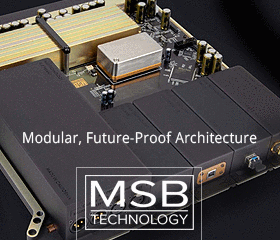You frequently hear people say that the differences between DACs are small. Is this a myth, or is there something to it? Are people who are claiming this have different realism triggers?
In my experience, and based on my realism triggers, some differences I hear are not subtle:
- Many DACs can't do a solid, rhythmic bottom end.
- Some, like the DSD DACs sound boring to me, lacking dynamics while producing an overly harmonic rich sound.
- And not all DACs are able to remove the harshness and brittleness from the high end, even after installing dedicating lines and implementing power conditioning.
But I wonder what everyone else thinks. Please share!
In my experience, and based on my realism triggers, some differences I hear are not subtle:
- Many DACs can't do a solid, rhythmic bottom end.
- Some, like the DSD DACs sound boring to me, lacking dynamics while producing an overly harmonic rich sound.
- And not all DACs are able to remove the harshness and brittleness from the high end, even after installing dedicating lines and implementing power conditioning.
But I wonder what everyone else thinks. Please share!













